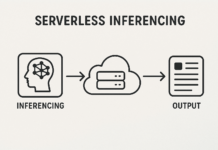If you go to your Google browser and type in the search bar ‘How to be happier’, you will notice that the first suggestion that pops up is ‘How to be happier at work’. It is not surprising actually – a lot of people have this question weighing heavily in their minds, especially if they are having a miserable day. If you are not convinced yet of how important answering this question is, then think about this fact – Google has actually employed a chief happiness officer.
You spend about a third of your life working, so being happy at your workplace is essential. Since you spend so much time there, you might as well make the most of it while you can. If it fails to be enjoyable, then that will mean more chances of slacking off and becoming less productive, which puts a serious drain on the bottom line of your company and the morale of your co-workers.
On the other hand, more happiness at work means you will be more engaged in your job, have more chances of collaborating with others, and being less likely to quit. The better your brain will function as well. If you are wondering how to increase your work-related happiness, here are some tips to help you out, all backed by scientific research.
Bring personal baggage to work
This suggestion may seem strange – after all, common workplace culture involves leaving any personal baggage at home. The workplace is where you come to work, spend the day doing tasks, then go home when your shift is over. You have no idea of how your co-workers are faring and whether they need extra help outside the workplace, or finding out anything they are going through.
However, increasing numbers of scientific research studies reveal that the separation of work and your personal life is proving to be a poor model. This is because it minimizes the worker and makes them feel like they are not valuable, cared for or even trusted in their workplace – which makes them feel less happy.
Of course, you do not need to tell every co-worker everything about your life, but you should promote empathy at all times. Ask questions and allow everyone to share moments that they feel are important to them.
When you know this information, it becomes easier to help your co-workers in case they are going through something or having a rough patch in their lives. It also increases compassion, while increasing social connections and personal trust. At the end of the day, allowing the development of personal connections in the workplace will increase trust among employees.
Working is a team sport, not a competition with co-workers
The problem with many workplaces today is that it is always framed as something you earn, and all benefits that come from it are tied in with the work you have accomplished within a certain time frame. This system rewards some and punishes others; just like placing bets on a gambling platform, even one as good as Spin palace reviews.
Some employees will think you are lucky enough to have landed a high position, while others become jealous and dislike you due to hard feelings. The workplace soon becomes ultra-competitive, and people end up hating each other.
When you study workplaces that are highly productive – they all seem to have something in common: workplace cooperation. Competing against workmates is highly counterproductive, because it leads to resentment and sadness. It always leads to a sense of creating territories and holding on to your things, which breeds distrust – a mentality that should never be encouraged in the workplace.
Instead of this happening, you should strive to assist your co-workers and create an atmosphere of collaboration and happiness. People will always work better together when they are not pitted against each other. Remember – teamwork makes the dream work.
When things get hot, pause and take breathers
While it is important to be productive, it is also important to pay attention to your health and have breathers in case things become tense. For instance, you might decide to take deep breaths whenever you can while you are working, or bearing some extra knowledge of what you are experiencing mentally and physically.
When you engage in thoughtful habits like breathing deeply before meetings, you can reduce the accumulation of harmful thoughts that result in anxiety attacks or stressful days, which make you less productive and more likely to hurt others. For instance, when a co-worker annoys you through a statement they made, instead of reacting immediately to them or yell at them, step outside or take deep breaths until you let go.
Be thankful for the people you work with, and express it to them
Many times, you do not need to do complex things to show others you are grateful to them – even a simple vocal expression or buying them something can let them know you value their presence in your life.
You have plenty of chances to show your co-workers your gratitude, because they are the ones that make all your daily efforts and productivity possible. The more you express your gratitude, the more it fosters a sense of cohesion and belonging. It also leads to increased trust and empathy in the workplace, which helps when you are working on a project and need to unite with them.
If you are a boss, you particularly need to apply this principle when dealing with your employees and show them that you value their contributions. It could be a simple effort of wishing them a good day, or organizing a dinner for them to express your gratitude.
Show respect to your co-workers
Above all, be nice to your co-workers, and this increases happiness levels at work without straining so much. Avoid being snarky or other unpleasant behavior, and this will create trust and high productivity.
Final thoughts
Increasing productivity in the workplace and becoming happier is not measured by the milestones you are achieving – rather, it is due to high trust levels, cooperation and respect.






















































